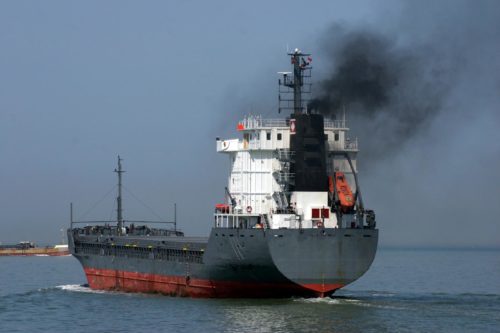The Union of Greek Shipowners (UGS) has hit out at the International Maritime Organisation (IMO) for approving the use of scrubbers to comply with its 0.5% sulphur cap, and called on more maritime nations to “step up” efforts to have safety concerns about the shift to new low-sulphur fuels in 2020 properly addressed by the UN body.
Addressing the 20th Marine Money Greek Forum, UGS President, Theodore Veniamis, was critical what he described as IMO’s “hypocritical” allowance of scrubbers, saying “everyone should use low-sulphur marine fuels”.
The UGS said exempting ships equipped with scrubbers “seriously undermines” the industry’s level playing field as well as reducing the environmental benefit of the new measures.
“It’s obvious to everybody the use of scrubbers is only a short-term option, driven by clear fast-profit motives, and against the IMO’s main target and the industry’s environmental commitment,” said Veniamis, warning IMO to “stay clear” of lobbying from commercially motivated stakeholders, alluding particularly to some owners with a stake in scrubber-manufacturing.
Veniamis said the UGS was alarmed by “the lack of input”, into this matter by the International Association of Classification Societies (IACS) as “the legitimate representative of the entities responsible for verifying the safety of ships and their crews at sea”. “Regrettably we have not seen to date any substantial contribution of IACS to this matter neither their input on environmental impact studies, at least of open loop scrubbers prior to their approval,” he said.
Meanwhile the UGS also once again called on classification societies to step forward and address issues of safety of ships and their crews at sea raised by the 2020 requirements.
Greek owners also back an ‘”experience-building phase” for the 2020 sulphur cap as the very least that should be done to protect ships and crews from fuel problems, while arguing scrubbers thwart green goals and are being pushed by owners with a vested interest in scrubber-manufacturing.
Veniamis said, “Greek shipowners remain firmly committed to the dates that have been agreed, but we refuse to agree with any possibility of compromising the ships’ and crews’ safety.”
Emphasing the credentials of Greeks as hands-on operators active mainly in the wet and dry bulk sectors, he noted these account for 83% of seaborne trade and are the sectors set to face the biggest challenges surrounding safe fuel availability in ports around the world, he said.
“We really appreciate the decision of IMO to examine even at a late stage, the transitional issues related with the 2020 global sulphur cap. In particular, I refer to the obvious uncertainties regarding the availability and supply of Marpol compliant fuels, which are also Solas compliant, safe, fit-for-purpose and available worldwide. The safety issues are a reality,” he said.
He said these safety concerns relate to fuel stability, incompatibility between different batches of blended fuels, lower flash points than the minimum required by Solas, inadequate safety margins for cat fines and extended ignition delays due to poor combustion characteristics, to name but a few.
According to him, “Failure to address these challenges would result in a real and major threat to ships’ crews and machinery and, by extension, to the marine environment.”
Veniamis hoped IMO member states would support the “experience building phase” (EBP), proposed by major flag states and shipping organisations. He said this offered “the minimum safeguard for the smooth implementation of the new regulation” and an EBP should be maintained to the extent necessary to ensure unsafe fuels did not circulate in the market.
He said the EC should understand the debate was solely about safety and not an effort to obstruct the IMO’s tackling of emissions.
Copyright Ships & Ports Ltd. Permission to use quotations from this article is granted subject to appropriate credit given to www.shipsandports.com.ng as the source.

